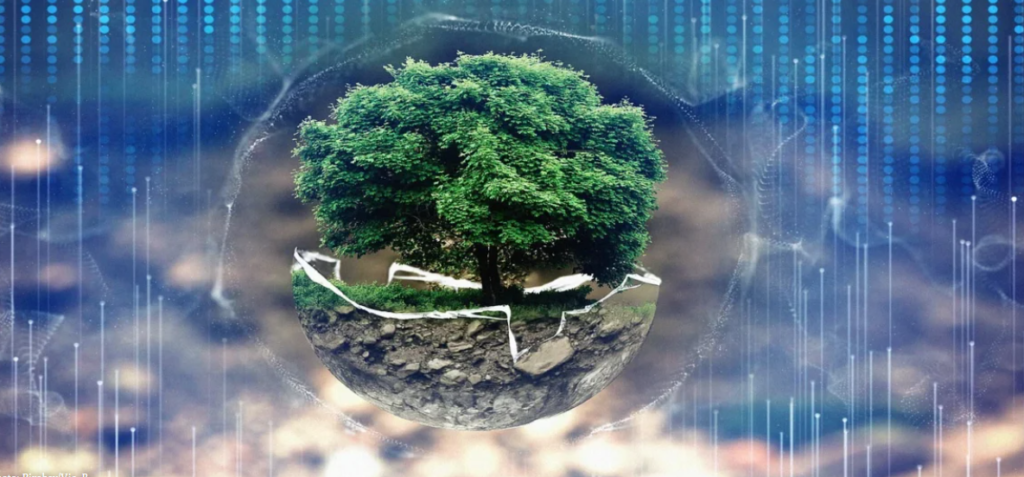In the face of the pressing global challenges of climate change, resource scarcity, and social inequality, the role of sustainability consulting has become indispensable. Sustainability consulting is a nexus of economic prosperity, social justice, and environmental stewardship, guiding organizations in aligning their operations with these principles. Central to this mission is the integration of cutting-edge technology.
This piece explores the transformative role of three key technologies—Artificial Intelligence (AI), the Internet of Things (IoT), and Blockchain—in the realm of sustainability consulting.
Technology and sustainability are inextricably linked today, shaping how we address environmental and social challenges. Technological innovations have revolutionized our approach to sustainability, turning it into a tangible and achievable objective. Harnessing the power of technology allows us to optimize resource management, streamline operations, and drive sustainable practices, thus redefining the parameters of sustainable development.

Artificial Intelligence: Beyond Predictive Insights
Artificial Intelligence (AI), once a buzzword confined to science fiction, has permeated various sectors, including sustainability consulting. AI’s ability to process and analyze vast amounts of data and generate predictive insights provides sustainability consultants with a robust tool for data-driven decision-making.
AI’s applications in sustainability are far-reaching. Predictive analytics can forecast energy consumption patterns, empowering organizations to optimize energy use and minimize their carbon footprint. Additionally, AI can enhance the accuracy of environmental impact assessments, enabling consultants to develop tailored sustainability strategies.
AI and Eco-Innovation
AI can catalyze eco-innovation by facilitating the development of products, services, and business models that minimize environmental impact. It can assist in designing energy-efficient buildings by analyzing parameters like building materials, orientation, and local climate conditions. AI-driven design can optimize energy consumption, reduce emissions, and contribute to broader sustainable development goals.
AI and Resource Management
AI plays a pivotal role in resource management, a crucial component of sustainability. Machine learning algorithms can analyze resource consumption patterns and suggest optimal usage strategies. This capability extends to various resources, including water, energy, and raw materials, highlighting AI’s versatility in sustainable resource management.
AI and Climate Change Mitigation
AI contributes significantly to climate change mitigation efforts. Machine learning algorithms can model and predict the impact of climate change, providing critical insights to inform policy and decision-making. AI can forecast the spread of wildfires or the impact of rising sea levels on coastal communities, enabling proactive measures to mitigate the adverse effects of climate change.
AI and Biodiversity Conservation
AI aids in biodiversity conservation by monitoring ecosystems and identifying threats to biodiversity. AI-powered drones and remote sensing technology can track deforestation, illegal wildlife trade, and other activities detrimental to biodiversity. AI can facilitate swift action to protect biodiversity by providing real-time, accurate data.
AI and Sustainable Supply Chains
Sustainable supply chains are another area where AI can make a significant impact. AI can track and analyze supply chain data to ensure products are sustainably sourced, manufactured, and delivered. This includes monitoring suppliers for environmental compliance, optimizing logistics for fuel efficiency, and predicting consumer demand to reduce overproduction and waste.
Internet of Things: Driving Sustainable Solutions
The Internet of Things (IoT) is transforming the sustainability consulting landscape. IoT, a network of physical objects embedded with sensors and software, creates ‘smart’ interconnected systems that enhance sustainability. IoT applications in sustainability consulting are numerous, from smart buildings that monitor and control energy use to IoT-enabled waste management systems that optimize waste collection and recycling.
Blockchain: Enhancing Transparency and Traceability
Though often associated with cryptocurrencies, blockchain has far-reaching applications beyond the financial sector. Its decentralized, transparent, and immutable nature can significantly contribute to sustainability efforts. In sustainability consulting, blockchain can enhance traceability in supply chains, enabling organizations to verify their suppliers’ sustainability credentials. Furthermore, blockchain can provide transparency in environmental impact reporting, fostering trust between organizations and their stakeholders. A prime example is the World Wildlife Fund’s use of blockchain to combat illegal fishing and promote sustainable seafood supply chains.
Seizing Opportunities Amid Challenges
While integrating technology in sustainability consulting presents unique opportunities, it also poses challenges such as data privacy concerns, technology accessibility, and a digital skills gap. Yet, the potential benefits of technology to the field of sustainability are too compelling to ignore.
Technologies like AI, IoT, and blockchain can catalyze disruptive innovation in sustainability consulting, offering fresh perspectives on long-standing sustainability challenges. As such, these technologies signify more than mere tools—they represent opportunities for growth and transformation in our journey toward sustainable development.
Conclusion: Embracing the Transformative Power of Technology
The interplay of technology and sustainability consulting narrates a compelling story of progress and potential. AI, IoT, and blockchain each offer unique capabilities that can enhance the effectiveness of sustainability consulting. Successfully deploying these technologies depends on our capacity to navigate associated challenges and fully leverage their potential.
Looking forward, it’s evident that technology will assume an increasingly pivotal role in sustainability consulting. The fusion of these two realms presents boundless opportunities for innovation, efficiency, and progress. In the face of escalating global challenges, leveraging technology in our pursuit of sustainability is not just a strategic choice—it’s a necessity.
As we continue to push the boundaries of sustainable development, embracing technology’s transformative potential is crucial. In doing so, we can ensure that our journey towards a sustainable future is not merely an aspiration but a tangible reality.


